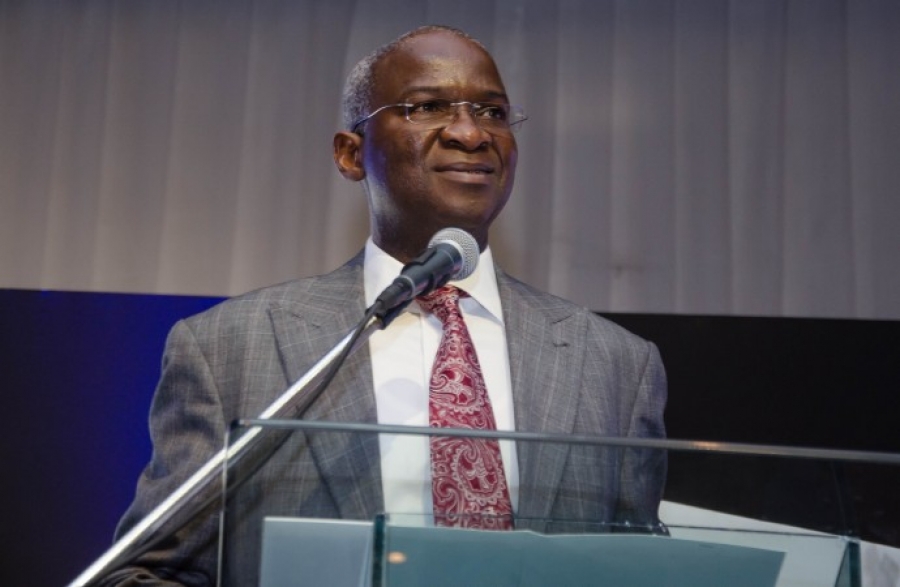- Oil Prices Drove Nigeria’s Growth Under Jonathan’s – NOT His Policies
Babatunde Fashola, minister of power works and housing, says the past government led by Goodluck Jonathan cannot say it is responsible for Nigeria’s growth over the past decade.
Fashola said the growth over the past decade was driven by high oil prices, not any economic policy implemented by the Jonathan administration.
The former governor said even Donald Trump who just won the US election knows that infrastructure drives growth, as stated in his inaugural speech.
“In the last decade or so, we experienced growth in the region of about seven, seven and a half, eight percent, but the commentary that followed those growth records was that people were still struggling, and ultimately, the public coined a narrative known as non-inclusive growth,” he said.
“There is a need to invest in infrastructure, and that is the meat of the point. That is the globally tested parameter for driving growth. In the scinece of economic management and governance, nobody has found a different way.
“I say this in the context of those who are tempted to lay some claim to any form of credit about why our economy was growing at seven percent for almost a decade, and I say very very clearly, without mincing words, that I don’t that anybody can fairly lay claim to any economic policy that drove that growth.
“It was growth that was driven by high oil prices. If we agree that infrastructure is the driver of growth, when you get high oil prices, what do you do with it? So, where are those towers, where are those bridges, where are those highways?
“It is fair to concede some initiatives, especially in the same sector in the petroleum industry, about promoting local content, but how far did local content go? It wasn’t in the productive part of oil, the rigs were not locally made, and all the technology wasn’t local.”
Fashola also said flipflop in government policies in the past did not help infrastructural growth, stating that the investor community in Nigeria is so small, and they talk to themselves by day, the same way politicians do to themselves by night.
He emphasized that a flip flop in government policies would make them exit the country almost at the same time.
“Investors must have the assurance that government will not flip flop, and contracts that fail have consequences. There is cost for investors on both sides.
“I recall, just shortly after I became governor, we privatised some refineries, a government came and cancelled it. So we should stop this back and forth,” he said.
Nike Akande, president of the Lagos Chambers of Commerce and Industry (LCCI), who also spoke at the fifth EU-Nigerian business forum, said “the decline in crude oil price has considerably changed our development focus for good”.
“We are taking steps to reduce our reliance on oil. A lot of attention is now being paid to manufacturing, agriculture and agro allied industries, solid minerals, lCT, entertainment and tourism and many other areas in the non-oil sector.
“The government is also focusing on the development of infrastructure to enhance the productivity of the non-oil sector of the economy, infrastructure provision such as power and transport offers tremendous opportunities for investment which the EU investors can explore at this time.
“Time has come for EU investors to put lesser emphasis impediments in the Nigerian market and pay attention opportunities and potentials in the economy.


 Forex2 weeks ago
Forex2 weeks ago


 Naira2 weeks ago
Naira2 weeks ago
 Billionaire Watch1 week ago
Billionaire Watch1 week ago




 Naira2 weeks ago
Naira2 weeks ago




 Naira1 week ago
Naira1 week ago




 Naira4 weeks ago
Naira4 weeks ago
 Nigerian Exchange Limited4 weeks ago
Nigerian Exchange Limited4 weeks ago


 Naira3 days ago
Naira3 days ago





















